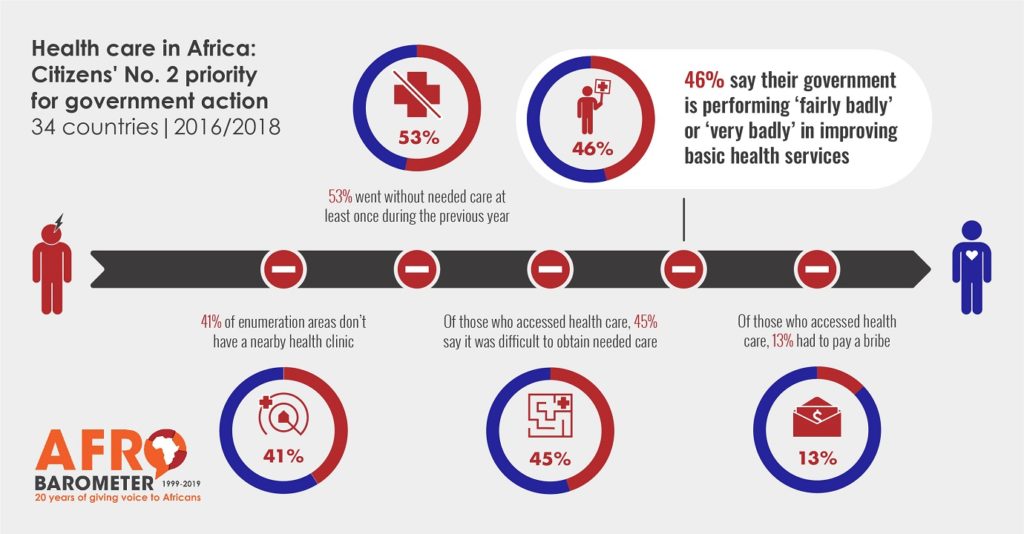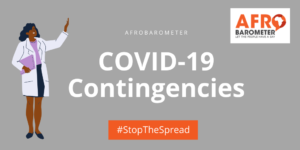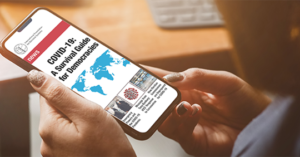
As the coronavirus pandemic grips the world, leaders are enacting special powers in this time of crisis. Augusta University political science professor Craig Albert discusses the long-lasting impact on democracy for VOA.
The Covid-19 pandemic lockdown will produce not only huge economic losses, but also deep social scars, Prospect’s Tom Clark observes. Worse, with the epidemiology still unfolding and a second wave of infections possible, there is no clear “exit strategy, he adds, citing John Kay and Mervyn King highlighting how Covid-19 leaves us in the realm of “radical uncertainty,” making leaps in the dark between “unknown unknowns,” while Anatol Lieven, decrying green utopians and blinkered national security elites in equal measure, provides a “realist” account of why the world is going to have to be saved one country at a time.
 A vicious cycle has been unleashed: under-resourced and unappreciated, governance and policy lack the means to provide solutions to complex problems of the 21st century, notes Francis J. Gavin, the Giovanni Agnelli Distinguished Professor and the inaugural director of the Henry A. Kissinger Center for Global Affairs at SAIS-Johns Hopkins University.
A vicious cycle has been unleashed: under-resourced and unappreciated, governance and policy lack the means to provide solutions to complex problems of the 21st century, notes Francis J. Gavin, the Giovanni Agnelli Distinguished Professor and the inaugural director of the Henry A. Kissinger Center for Global Affairs at SAIS-Johns Hopkins University.
Like a spreading cancer, these failures have eaten away at the public legitimacy of our governing institutions and practices, further undermining our ability to meet new challenges, he writes in a must-read article for War On The Rocks: (HT: former NED Penn Kemble fellow Ali Wyne):
Expertise is derided, government officials are labeled members of a “swamp,” and officials interested in America’s engagement with the world are mocked as self-dealing members of a “blob,” or — worse — “the deep state.” Instead of pouring much-needed resources and innovation into governance, bureaucracy and public affairs are held in lower and lower esteem as the United States waits, often in vain, for technology and the private sector to fix problems they are not designed to solve.
The determining factor may be less the form of government — democracy or autocracy — than a tradition of recognizing that effective public policy and governance is vital to effectively handling complex problems, Gavin adds.
 Africans faced a frequent lack of needed health-care services, including almost two-thirds of the poorest citizens, adds Brian Howard of Afrobarometer, a partner of the National Endowment for Democracy (NED). Afrobarometer’s 15th Pan-Africa Profile, released ahead of World Health Day (April 7), provides a pre-COVID-19 snapshot of African experiences and assessments of their public health-care systems.
Africans faced a frequent lack of needed health-care services, including almost two-thirds of the poorest citizens, adds Brian Howard of Afrobarometer, a partner of the National Endowment for Democracy (NED). Afrobarometer’s 15th Pan-Africa Profile, released ahead of World Health Day (April 7), provides a pre-COVID-19 snapshot of African experiences and assessments of their public health-care systems.
 Without a strong foundation for democratic resilience, a global health crisis can shock democratic institutions and offer an alluring blank check to governments to use emergency powers to curtail individual and collective political rights in the short and long term, note IFES experts Katherine Ellena and Erica Shein. These rights include freedoms of expression and information; freedom of movement; the right to privacy, freedom of assembly; the right to vote and be elected; and due process protections.
Without a strong foundation for democratic resilience, a global health crisis can shock democratic institutions and offer an alluring blank check to governments to use emergency powers to curtail individual and collective political rights in the short and long term, note IFES experts Katherine Ellena and Erica Shein. These rights include freedoms of expression and information; freedom of movement; the right to privacy, freedom of assembly; the right to vote and be elected; and due process protections.
#COVIDxDemocracy | IFES experts weigh in with critical analysis and innovative solutions during this time of uncertainty.







